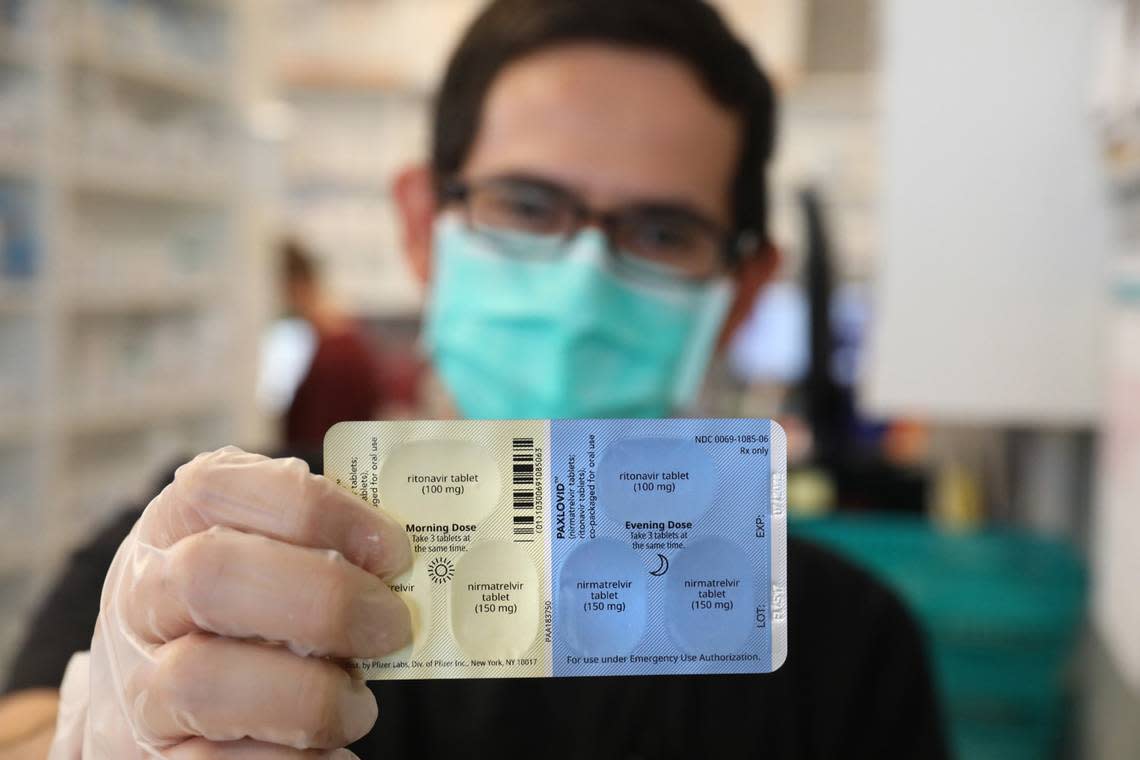It’s extra important to test after New Year’s gatherings, UNC doctor says. Here’s why
It’s a sniffle, a tickle in the throat and a headache. Or a fever, congestion and fatigue.
Could it be COVID, the flu or RSV?
If you’re unvaccinated, over the age of 65 or have underlying health conditions, you shouldn’t wait to find out, said Dr. David Weber, associate chief medical officer at UNC Medical Center and medical director of UNC’s Department of Infection Prevention.
After Christmas and Hanukkah gatherings over the weekend, and as we’re gearing up for another party-all-night holiday weekend for New Year’s Eve, Weber wants to make one thing clear: Make sure you’re getting tested.
“We always see surges in these viruses after the holidays. We did after Thanksgiving, and we will in the days after Christmas and New Year’s,” Weber said in an interview. “We have therapies for COVID — the biggest risk right now — and for the flu. Make sure you know which virus you have so you can get the right treatment.”
These therapies only work in a short window of time, and you don’t want to wait until that window’s expired.
Could I have COVID, the flu or RSV?
The only way to know for sure: Get tested.
Symptoms overlap for all three winter illnesses (and there’s so much of all three going around, this season is known as the “tripledemic”). It’s unfortunately even possible to have all three at once.
Testing can be an at-home antigen test or PCR test for COVID, or a 4-plex test — which tests for all three diseases at the same time — at your doctor’s office.
“It’s easy to say, ‘I’m not home, I’m just visiting and my doctor’s not here, I’ll do it when I get home,’” Weber said. “But if you wait a few days and wind up getting worse, you’re already past the window for therapies to work.”

COVID, flu therapies
For the best results, Weber said, flu therapy should be taken within two days of onset symptoms, and therapy for COVID-19 should be started within five days. These treatments drastically decrease the need for hospitalization and the likelihood of death from the viruses.
Tamiflu (which treats influenza) and Paxlovid (which treats COVID) are pills that require a prescription from a doctor or pharmacist. Both are taken orally at home for five days. RSV doesn’t have an FDA-approved therapy yet.
“By the time you reach the age of 50, there’s a 50/50 chance you have an underlying disease that puts you at greater risk of hospitalization and death from these viruses,” Weber said. “Not to scare people, but to show how important it is to take the time to get tested and get treatment.”
Ask the N&O
Have a question you’d like answered? Or maybe a tip or story idea you’d like to share? The News & Observer’s Service Journalism team wants to hear from you. For useful and practical information from our staff, reach us by submitting questions to our form or sending an email to ask@newsobserver.com.
Should we mask up over the holidays to avoid COVID, flu, RSV? A UNC doctor’s advice
What if I can’t find children’s Tylenol, Advil or Motrin? A UNC pharmacist’s advice
What exactly is RSV? A UNC doctor explains symptoms, treatments and how it’s spread
